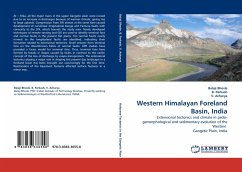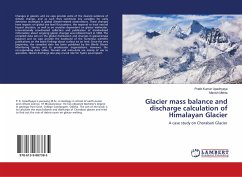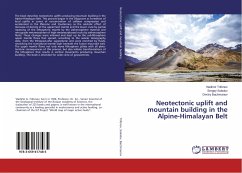At ~10ka, all the major rivers in the upper Gangetic plain were incised due to an increase in discharges because of warmer climate, giving rise to large uplands. Compression from SW almost at the same time caused development of curvilinear longitudinal Ganga and Yamuna faults with convexity to the SW, which bounds the study area. Newly developed techniques of remote sensing and GIS are used to identify terminal fans and normal faults in the present flat plains. Ten normal faults nearly normal to the longitudinal faults are identified, indicating their formation related to extensional tectonics. Small streams form terminal fans on the downthrown block of normal faults. GPR studies have provided a facies model for terminal fans. Thus, terminal fans have formed by breaks in slopes caused by faults in contrast to the earlier concept of the loss of discharge by evapo-transpiration. The extensional tectonics playing a major role in shaping the present day landscape in a foreland basin has been brought out convincingly for the first time. Reactivation of the basement features affected surface features in a minor way.
Bitte wählen Sie Ihr Anliegen aus.
Rechnungen
Retourenschein anfordern
Bestellstatus
Storno








